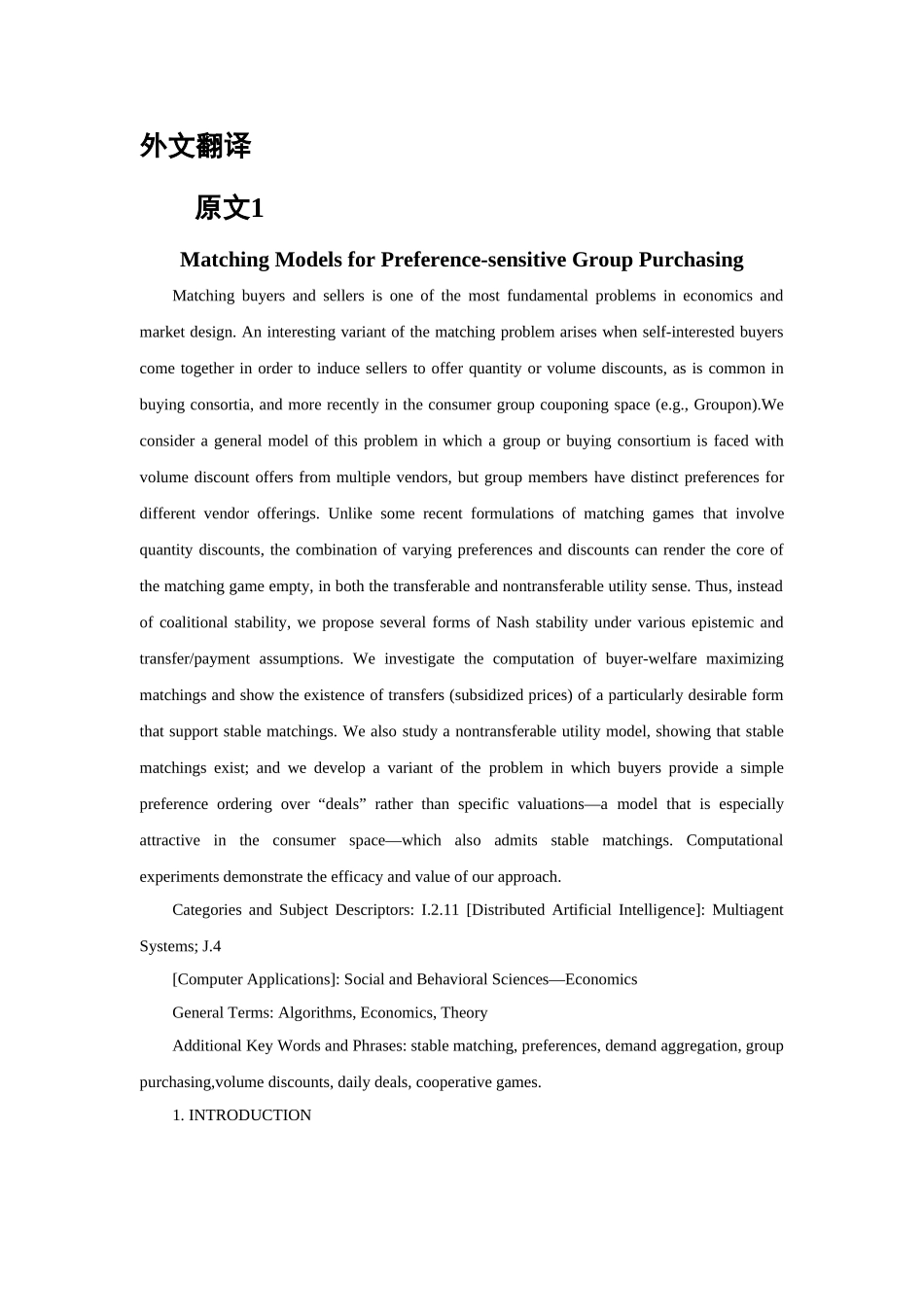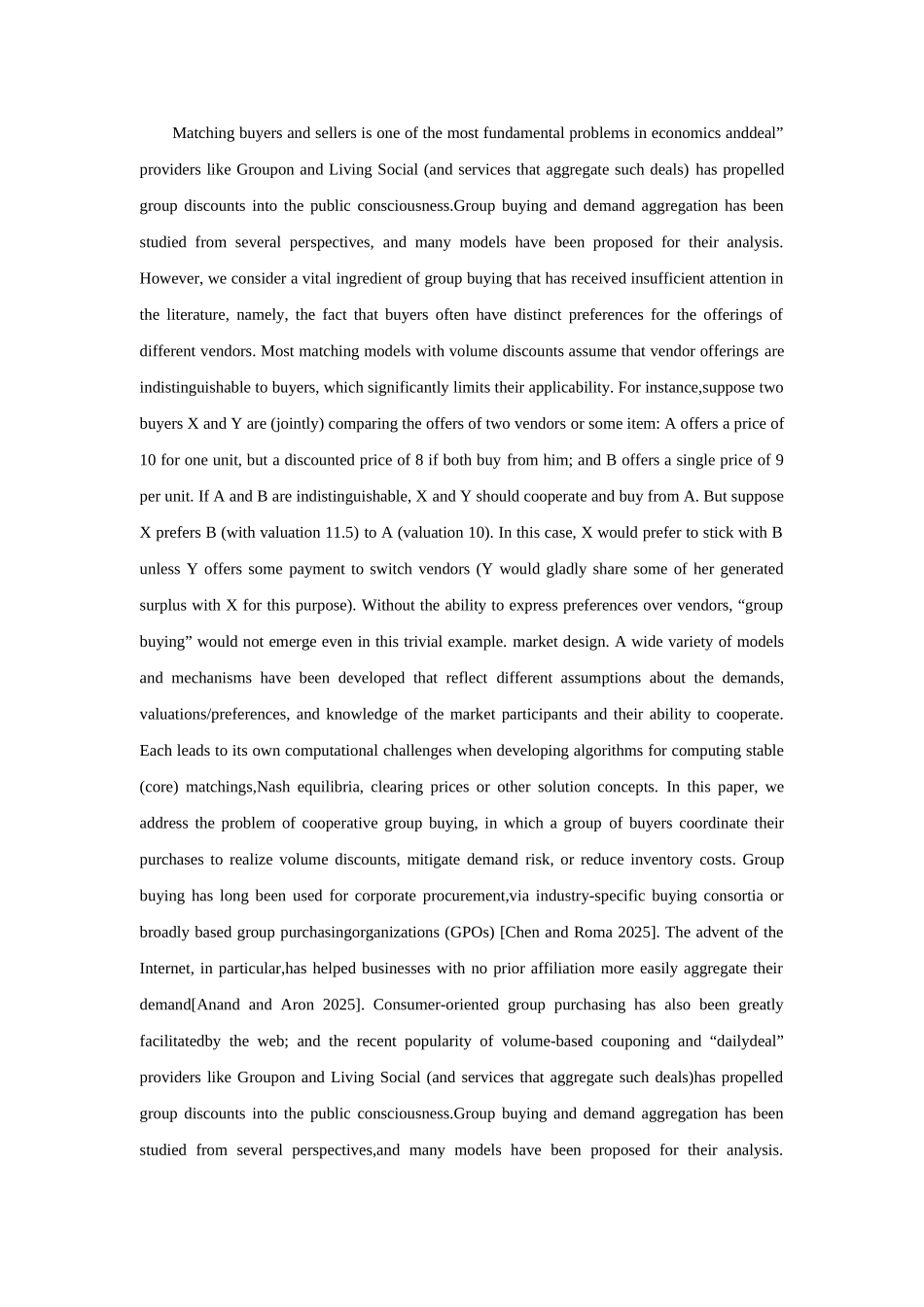外文翻译原文1Matching Models for Preference-sensitive Group PurchasingMatching buyers and sellers is one of the most fundamental problems in economics and market design. An interesting variant of the matching problem arises when self-interested buyers come together in order to induce sellers to offer quantity or volume discounts, as is common in buying consortia, and more recently in the consumer group couponing space (e.g., Groupon).We consider a general model of this problem in which a group or buying consortium is faced with volume discount offers from multiple vendors, but group members have distinct preferences for different vendor offerings. Unlike some recent formulations of matching games that involve quantity discounts, the combination of varying preferences and discounts can render the core of the matching game empty, in both the transferable and nontransferable utility sense. Thus, instead of coalitional stability, we propose several forms of Nash stability under various epistemic and transfer/payment assumptions. We investigate the computation of buyer-welfare maximizing matchings and show the existence of transfers (subsidized prices) of a particularly desirable form that support stable matchings. We also study a nontransferable utility model, showing that stable matchings exist; and we develop a variant of the problem in which buyers provide a simple preference ordering over “deals” rather than specific valuations—a model that is especially attractive in the consumer space—which also admits stable matchings. Computational experiments demonstrate the efficacy and value of our approach. Categories and Subject Descriptors: I.2.11 [Distributed Artificial Intelligence]: Multiagent Systems; J.4[Computer Application...


